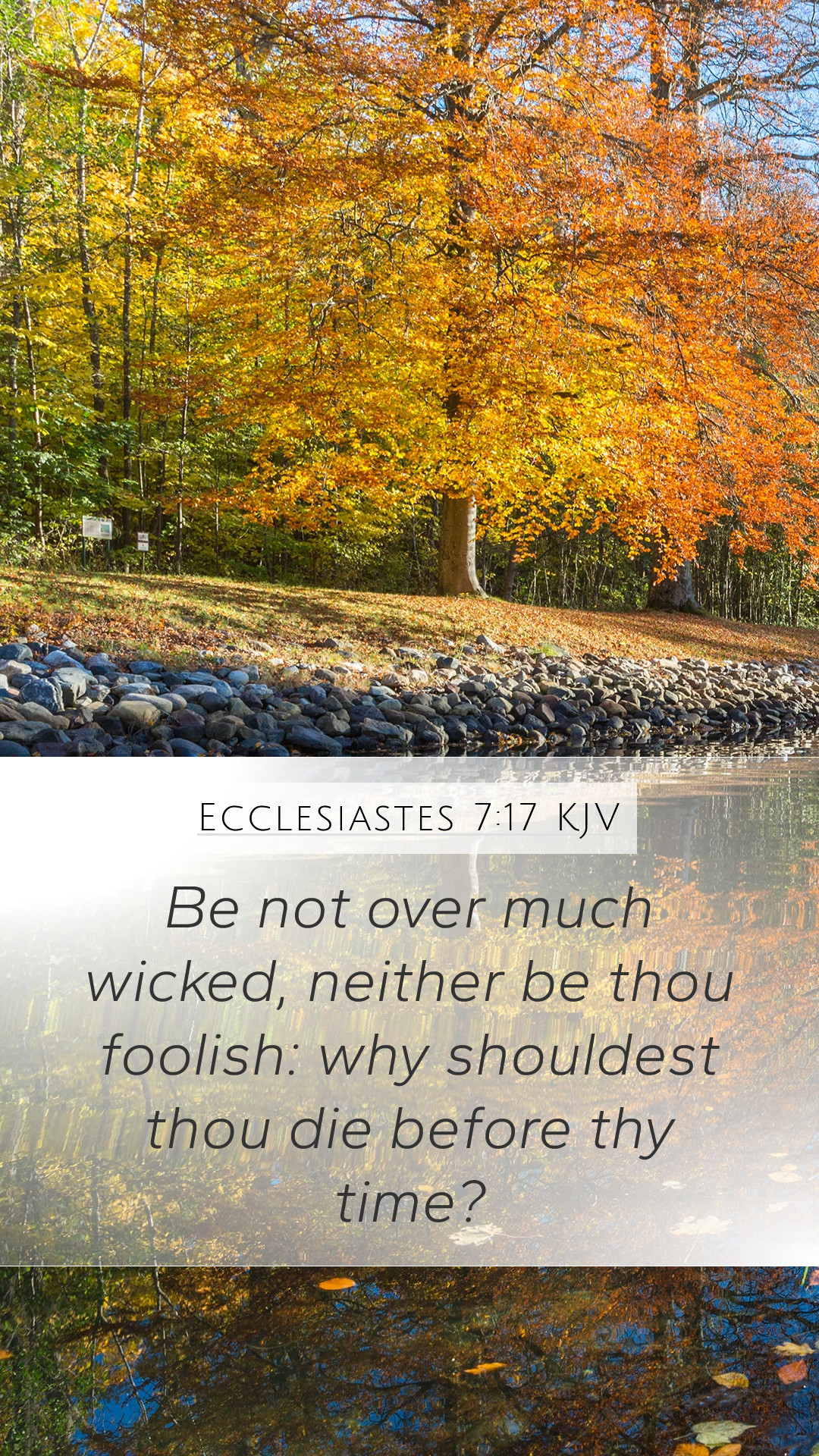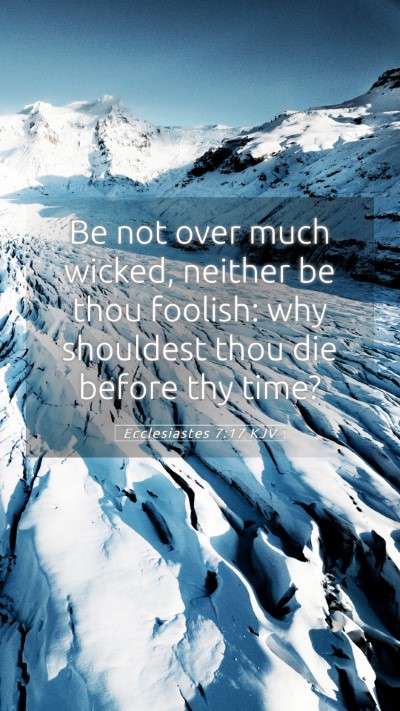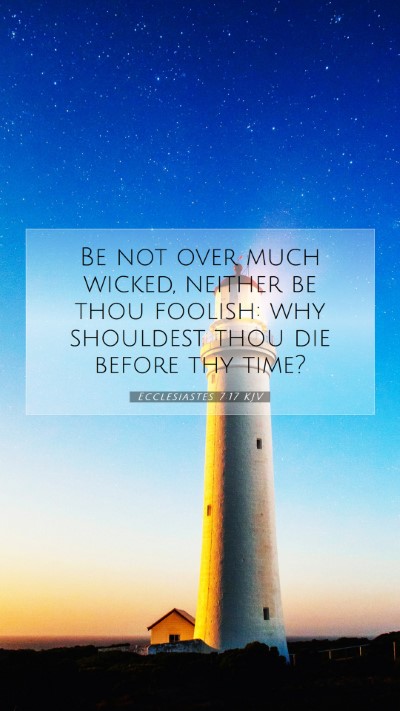Understanding Ecclesiastes 7:17
Ecclesiastes 7:17 states: "Be not over much wicked, neither be thou foolish: why shouldest thou die before thy time?" This verse offers profound insights into the wisdom of balancing one's behavior and understanding the consequences of one's actions.
Verse Meaning and Interpretation
This passage provides a twofold admonition against extremes in behavior. Here’s a summary of its meaning based on public domain commentaries:
- Excessive Wickedness: The verse warns against being excessively wicked. Matthew Henry comments that pursuing a life of wickedness leads to ruin and destruction. It emphasizes that a life lived in disregard for moral laws can result in premature death.
- Foolishness: The verse also cautions against foolishness. Albert Barnes points out that foolishness can encompass both lack of wisdom and reckless living. Engaging in foolish behavior not only leads to moral decay but can have severe physical consequences as well.
- Consequences: Adam Clarke notes that the consequences of both wickedness and foolishness may result in untimely death. This is a stark reminder of the need for self-awareness and accountability in our choices.
Reflections on Biblical Wisdom
The context of Ecclesiastes is rooted in the quest for understanding life's meaning. This particular verse addresses how one’s actions can either lead to a fulfilling life or to ruin. The reflections from these commentaries provide deeper biblical insights:
- Balance in Life: The overall theme encourages individuals to seek a balanced life, avoiding extremes that could lead to ruin.
- Self-Examination: Readers are prompted to conduct self-examination to understand the impacts of their behavior.
- Practical Application: Applying this wisdom involves recognizing the importance of living wisely and righteously, thus ensuring a fruitful existence.
Application of the Verse
Understanding this scripture offers practical tools for everyday life:
- Mindfulness: Be mindful of your actions and their repercussions. Ask yourself, "Are my choices leading me toward fulfillment or destruction?"
- Engagement in Bible Study: Participate in Bible study groups that allow for deeper exploration of such passages. This can enhance understanding and application in daily life.
- Personal Reflection: Reflect regularly on any areas of life where you might lean towards excess or folly, and seek to correct course.
Cross References
This verse resonates with various scriptures that provide additional insight and context on the theme of wisdom and consequence:
- Proverbs 1:7: "The fear of the LORD is the beginning of knowledge: but fools despise wisdom and instruction."
- Proverbs 14:12: "There is a way which seemeth right unto a man, but the end thereof are the ways of death."
- James 4:17: "Therefore to him that knoweth to do good, and doeth it not, to him it is sin."
Conclusion
In summary, Ecclesiastes 7:17 urges readers to maintain a balanced approach to life, acknowledging the dangers of excessive wickedness and foolishness. The guidance from public domain commentaries enriches our understanding of this scripture and encourages practical applications in pursuit of a wise, fulfilling life.


